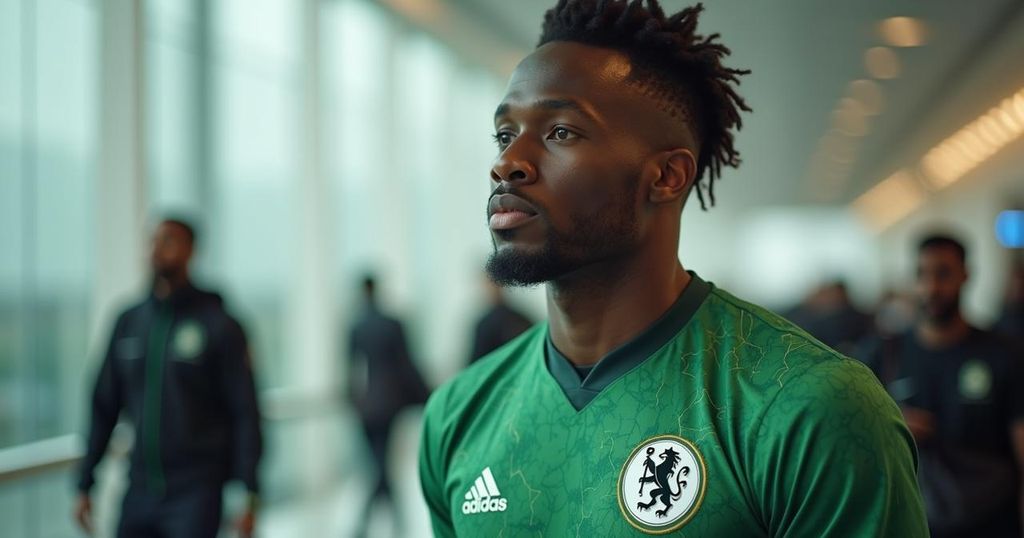Nigerian National Team Stranded in Libya: A Call for Intervention
The Nigerian national football team, including Leicester City’s Wilfred Ndidi, has claimed they are being held hostage in Libya following a flight diversion that landed them at a closed airport. Stranded without food or water for over 12 hours, the players have expressed their intention to boycott the upcoming match due to the conditions imposed by the Libyan authorities. Ndidi and fellow players have vocalized their frustrations on social media, calling attention to the disgraceful treatment they have encountered.
Leicester City’s Wilfred Ndidi has publicly voiced his distress along with his Nigerian teammates, claiming they are being effectively held hostage in Libya due to an unforeseen diversion of their flight. Originally scheduled to fly to Benghazi for an Africa Cup of Nations qualifier match against Libya, the players found themselves landing at the closed Al-Abraq Airport. This diversion occurred without prior notice, and it left the Super Eagles stranded for over 12 hours without access to food or water. Reports suggest that these conditions may be a direct result of complaints lodged concerning “hostile treatment” during their prior encounter with Libya. The Nigerian team has since indicated their intent to boycott the upcoming match due to these circumstances, as they remain confined within the Al-Abraq airport terminal. Wilfred Ndidi articulated his frustration on social media, stating, “This is not football. Very embarrassing. Hostage to a national team. Disgrace.” Another player, Victor Boniface of Bayer Leverkusen, joined Ndidi on Twitter, lamenting their extended wait at the airport and the absence of basic necessities. Meanwhile, William Troost-Ekong, a former Watford player, offered a more detailed account via a series of posts on the social media platform X, detailing their difficult situation with the Libyan authorities. He criticized the government for denying them proper sustenance and shelter, suggesting that this treatment was a tactic meant to intimidate the Nigerian team. Troost-Ekong expressed, “I have experienced stuff before playing away in Africa but this is disgraceful behavior.” The team has called upon the Nigerian government to intervene and facilitate their safe return. They have collectively decided against participating in the forthcoming match, emphasizing that they refuse to accept such treatment, highlighting their commitment to respect both themselves and their opponents. This series of events has raised serious concerns about player welfare and the conduct of hosts in international sporting events.
The situation involving the Nigerian national football team during their Africa Cup of Nations qualifier has raised significant concerns regarding player safety and treatment during international sports events. In sports, players sometimes face unforeseen circumstances, particularly during travel, which can complicate their ability to compete effectively. The claims made by players regarding hostile treatment and deprivation of basic provisions draw attention to the need for governing bodies to ensure that all teams are treated with respect and dignity, irrespective of the political contexts or tensions that may arise during match organization. Understanding these dynamics is essential in recognizing the challenges faced by international athletes, particularly in regions with political instability or strained international relations.
The ordeal faced by the Nigerian football team, as articulated by its members, underscores the challenges and potential dangers inherent in international sports travel, particularly in politically sensitive regions. The players’ collective decision to prioritize their well-being over competition reflects their unwillingness to tolerate adverse conditions inflicted by the host country. The necessity for adequate interventions and protections for athletes in such circumstances has never been clearer, prompting a call for better standards and accountability in sports governance.
Original Source: www.mirror.co.uk




Post Comment